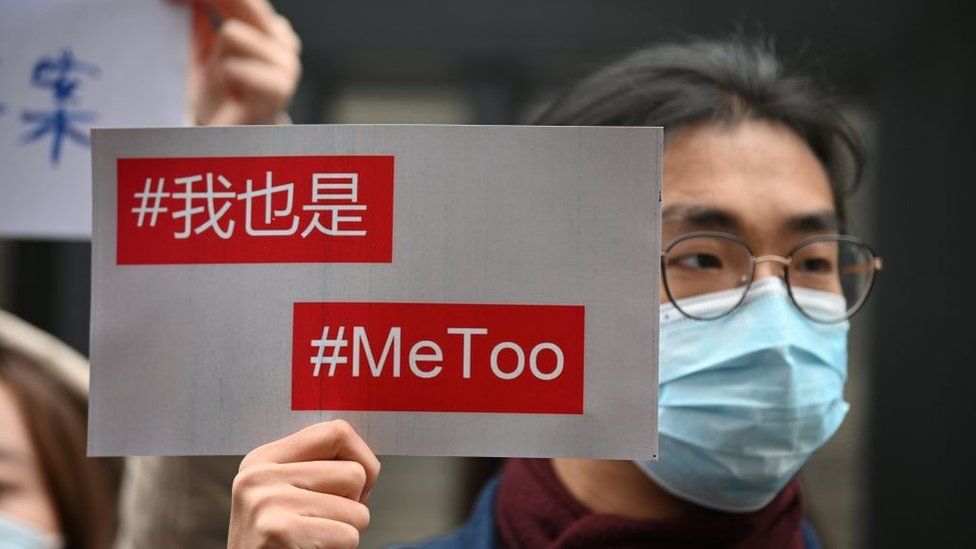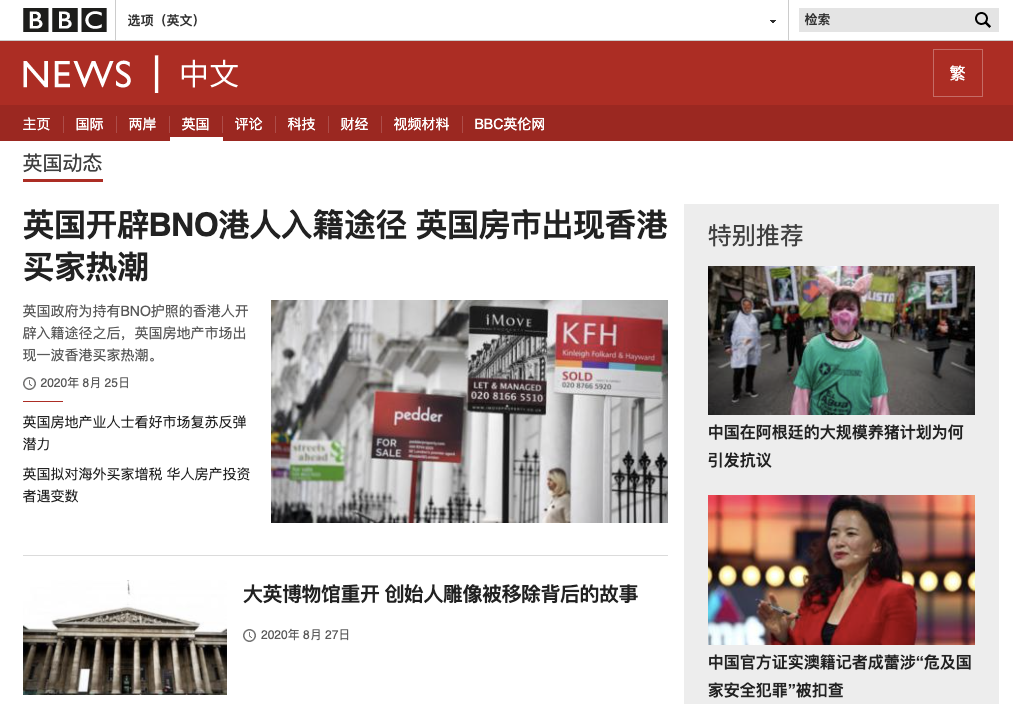On Monday, several activists wore t-shirts emblazoned with the question “Where Is Peng Shuai?” to a match at Wimbledon in order to raise awareness about the Chinese tennis star. Peng has been absent from international media following her forced disappearance, forced re-appearances, and forced retirement in the wake of a sexual assault allegation against former Chinese Vice Premier Zhang Gaoli that she posted last November. Peng won a Grand Slam title at Wimbledon in 2013, but discussion of the injustice against her was unwelcome at the tournament this week. As Emine Sinmaz from The Guardian reported, the activists were confronted by Wimbledon security guards who warned them not to approach anyone at the venue:
Will Hoyles, 39, one of the campaigners, said: “We came trying to raise a bit of awareness but Wimbledon have managed to make it worse for themselves by harassing us …
“They were asking loads of questions about what we were going to do, why we were here, you know, what we’d already done etc. And we told them we’d just been wandering around and we’d spoken to a few people and that’s when they seemed to get quite suspicious.”
He said that the staff told them they “should not approach anyone to talk to them”. “They said repeatedly the club doesn’t like to be political,” he added.
Despite citing “political neutrality” to justify tamping down the show of support for Peng Shuai, Wimbledon chose to ban 16 athletes from Russia and Belarus in April, in response to Russia’s invasion of Ukraine and Belarus’ support for the invasion. A similar controversy occurred in January, when the Australian Open ejected activists attempting to raise awareness about Peng Shuai’s disappearance, but that organization later reversed its decision under widespread public pressure. The Women’s Tennis Association, one of the few major tennis organizations that has followed through on its supportive rhetoric of Peng, has canceled all of its events in China due to her continued absence from public life.
Good to see a small group of activists here at #Wimbledon today wearing “Where is Peng Shuai?” t-shirts.
There has been only silence since Peng was trotted out as a prop for the Olympics in February.
Questions remain, and China remains on the ATP’s 2022 schedule.
— Ben Rothenberg (@BenRothenberg) July 4, 2022
Off the court, other #MeToo cases are slowly making their way through China’s judicial system. On June 22, a Chinese court sentenced Zhang Guo, a man accused of sexually assaulting a former Alibaba employee, to 18 months in prison. The former employee, surnamed Zhou, alleged that Zhang and her former manager, surnamed Wang, had pressured her into drinking too much alcohol at a client dinner last August and raped her later that night. After Zhou revealed her story on an internal corporate message board, Alibaba fired Wang, but then did an about-face and fired ten other employees for “leaking” Zhou’s accusation to the public. Zhou eventually lost her own job as well. This week, in the wake of Zhang’s sentencing, Zhou called out inconsistencies in the police statement about the case. Huizhong Wu from the Associated Press reported on Zhou’s online post criticizing Wang’s lenient judicial treatment:
Zhou criticized the official police account for turning her manager from “someone who objectively has criminal intention, a rapist with actual criminal intentions, into a good boss caring for his drunk female subordinate.”
“And as for me? … I have become a slut who is falsely accusing the male boss that she was carrying on with,” she continued.
[…] She wrote that her former manager had stolen her ID card to get the hotel to make him a key for her room, asking the staff to list him as a fellow traveler. She also said that police had concluded she could not express herself clearly when the front desk called to get her consent for giving him a key.
“He voluntarily cancelled his taxi on the app, carried my stolen ID card, went back to the hotel and added himself to my room, sexually violated me,” she told the AP, elaborating on her post. “All these things show that not only did he intentionally try to rape, but also he committed a criminal act.”
A police statement last August said that Wang had the key made with Zhou’s consent and that he had her ID card, without saying how he had gotten it.
Two days after Zhang was sentenced to prison, a four-hour public hearing for a sexual assault case involving the leader of another powerful Chinese tech company took place in the U.S. The victim, Liu Jingyao, has accused Liu Qiangdong, the billionaire founder of Chinese e-commerce giant JD.com, of raping her after a dinner and drinks party in 2018. At the time, Liu Jingyao was an undergraduate at the University of Minnesota. The hearing revolved around a motion to add punitive damages against Liu Qiangdong and JD.com, and the official jury trial is scheduled to begin on either September 26 or October 3. In a recent overview of the case published by a WeChat account supportive of women’s rights, friends and supporters of Jingyao who attended her hearing shared more details about the trial, and criticized the double standards applied to male and female behavior in sexual assault cases:
In the court of public opinion, victims are on the receiving end of boundless scrutiny and mistrust. Why don’t we ask Liu Qiangdong, or the person who organized the event, why a dozen middle-aged men would invite a young twenty-something woman to a drinking party? Why did Liu Qiangdong bring Jingyao to his villa in the first place? Liu Qiangdong is a married man, so why wasn’t he more circumspect about his words and behavior? People tend to instinctively come up with excuses to justify the behavior of rich and powerful men. But as a woman, unless you happen to think like a perfectly rational automaton, people will tend to exaggerate the “irrational” aspects of your behavior.
This week, similar public vilification was heaped on Yu Xiuhua, a woman born with cerebral palsy who has become famous for her poems about love, sexuality, disability, and female identity. In a Weibo post (deleted two hours after it was published on Wednesday), she accused her estranged husband Yang Zhuce of domestic violence, alleging that he physically assaulted her multiple times in the course of their two-month marriage, after she asked him if he was having an affair with another woman. While some of Yu’s fans were sympathetic or outraged on her behalf, other netizens criticized her for being an attention-seeker, alleged that she “had it coming,” or made her the target of online bullying and death threats. The author of a WeChat post archived by CDT detailed how women who suffer sexual violence often receive harsher public scrutiny and criticism than their male abusers:
This has become a common practice online. When a woman suffers domestic abuse, the first question people ask is, “What did she do [to provoke it]?”
In the absence of other evidence, the mind conjures up various and vilifying possibilities:
“Did the man find out that their child wasn’t his?”
“Was she mean to her in-laws?”
“Was she too bad-tempered?”
This is particularly true in the case of Yu Xiuhua, a headstrong, high-profile woman with many enemies. Some will find it easy to understand why a man might beat her: they’ll say she had it coming, she brought this humiliation on herself, she knew the risks and went into it with her eyes wide open.
“You’re old, disabled, and ugly—why would you think such a young man could actually love you?”
The heartless domestic abuser has thus far avoided the storm, while Yu Xiuhua, the one who was beaten, finds herself in the eye of the storm, the object of public censure.




